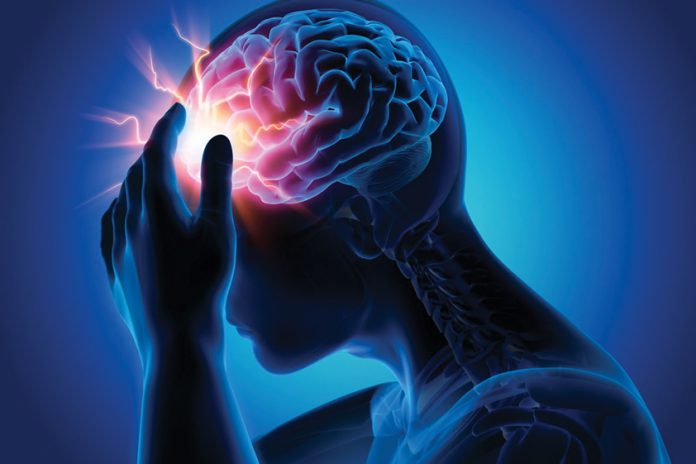Your risk for post-stroke seizure is the highest the first 30 days following a stroke. Approximately 5 per cent of people will have a seizure within a few weeks after having a stroke. You’re more likely to have an acute seizure within 24 hours of a severe stroke, a hemorrhagic stroke, or a stroke that involves the cerebral cortex.
Sometimes, a person who has had a stroke may have chronic and recurring seizures. They may be diagnosed with epilepsy.
How do you know if you’re having a seizure?
Forty different types of seizures exist. Your symptoms will differ depending on the type of seizure you have.
The most common type of seizure and the most dramatic in appearance is a generalized seizure. The symptoms of a generalized seizure include:
- muscle spasms
- tingling sensations
- shaking
- a loss of consciousness
Other possible symptoms of seizure include:
- confusion
- altered emotions
- changes in the way you perceive how things smell, sound, look, taste, or feel
- a loss of muscle control
- a loss of bladder control
When should you see your doctor?
If you have a seizure, notify your nearest health facility immediately. They will want to know the circumstances that surrounded your seizure. If someone was with you at the time of the seizure, ask them to describe what they witnessed so you can share that information with your doctor.
How can you help someone having a seizure?
If you see someone having a seizure, you should do the following:
- Place or roll the person having the seizure on their side. This will help prevent choking and vomiting.
- Place something soft underneath their head to prevent further injury to their brain.
- Loosen any clothing that appears to be tight around their neck.
- Don’t restrict their movement unless they’re at risk of hurting themselves.
- Don’t put anything in their mouth.
- Remove any sharp or solid items that they may come into contact with during the seizure.
- Pay attention to how long the seizure lasts and any symptoms that occur. This information will help emergency personnel provide the proper treatment.
- Don’t leave the person having the seizure until the seizure is over.
If someone experiences a long seizure and doesn’t regain consciousness, this is a life-threatening emergency. Seek immediate medical help.
What is the outlook?
If you’ve experienced a seizure following a stroke, you’re at an increased risk of developing epilepsy. If it has been 30 days since you had a stroke and you haven’t had a seizure, your chance for developing an epilepsy disorder is low. If you’re still experiencing seizures more than a month after stroke recovery, however, then you’re at a higher risk for epilepsy. Epilepsy is a disorder of the neurological system. People with epilepsy have recurrent seizures that aren’t associated with any specific cause.
You may have restrictions placed on your driver’s license if you continue to have seizures. This is because having a seizure while driving is not safe.
What you can do today
Follow these tips to reduce your risk for seizure:
- Stay hydrated.
- Avoid overexerting yourself.
- Maintain a healthy weight.
- Eat foods that are high in nutrients.
- Avoid alcohol if you’re taking prescription seizure medications.
- Avoid smoking.
If you’re at risk for having a seizure, the following can help keep you safe if you do have a seizure:
- Ask a friend or family member to be present if you’re swimming or cooking. If possible, ask them to drive you where you need to go until your risk has decreased.
- Educate your friends and family about seizures so that they can help keep you safe if you have a seizure.
- Talk to you doctor about things you can do to reduce your risk for seizure.
You doctor may prescribe anti-seizure medications to help reduce your risk for seizure. Follow your doctor’s instructions and take all medications as prescribed.
Your doctor may recommend a vagus nerve stimulator (VNS). This is sometimes referred to as a pacemaker for your brain. A VNS is operated by a battery that your doctor surgically attaches to the vagus nerve in your neck. It sends out impulses to stimulate your nerves and reduce your risk for seizure.
If you would to make an appointment to see a Neurologist or would like more information on any of the above then please contact Phyathai Sriracha Hospital Neurology Center on telephone number 088 – 5000 – 207 email: [email protected] www.phyathai-sriracha.com in the case you think you are having a stroke or seizure then call 24 hour number 087 – 100 – 0990










